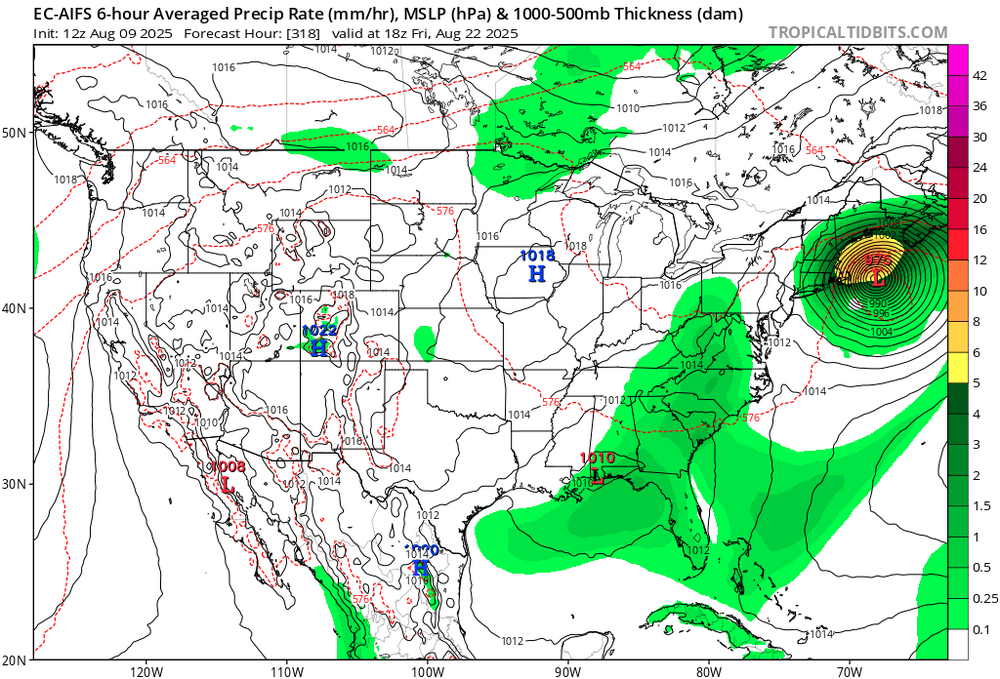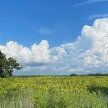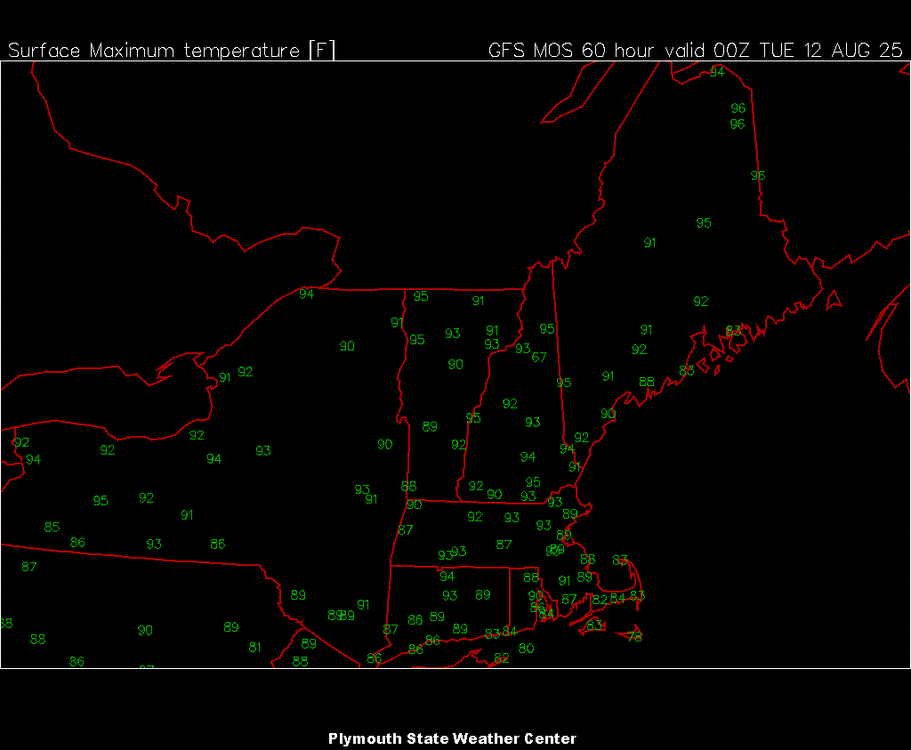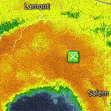All Activity
- Past hour
-
it got hot today, wasn’t expecting 90+
-
82/57 another great day
-
Don’t mind the warmth during the winters as long as there are great snowfall outcomes. The NYC Metro first began to get these warmer and snowy winter combos back in the mid-2000s. The first half of January 2005 began at record warm levels but reversed mid-month to record cold and very snowy. Then the 2005-2006 winter started cold and snowy in December. This was followed by record warmth in January with some spots in the Midwest around +15°. Then the cold and snow returned in February with the 2nd heaviest snowstorm on record in NYC. We had a mild start to winter in 2012-2013 followed by one of the greatest February snowstorms on record from LI into SNE in February. The 2015-2016 winter stated with the +13.3 December followed by the heaviest snowstorm on record in January. The 2016-2017 winter featured 60s record warmth the day before the February blizzard and a very mild January and February. 2017-2018 winter had record cold and snow from from December into January before the record 80° warmth in February. Then the record breaking March monthly snowfall on Long Island. 2020-2021 was a milder than average winter which also turned out very snowy. We had the record warmth in December 2021 followed by the cold and snowy January especially Eastern sections of NYC Metro. January 2022 was our last cold and snowy month. So the warmth began to emerge periodically around NYC Metro while it was still very snowy. But unfortunately the warming continued while the snowfall declined over the last 7 seasons. Since the storm tracks shifted further north warming the storm tracks. Our last semblance of a colder storm track was back in January 2022. Maybe with some luck we can see at least a few months the rest of the 2020s with colder storm tracks somewhat reflecting January 2022 . Wouldn’t mind even a weaker reflection of that month with just a single KU instead of the multiple events that month. But the record Northern Stream of the Pacific has been very persistent since 2018-2019 leading to the dominant storm tracks through the Great Lakes.
-
2025-2026 ENSO
PhiEaglesfan712 replied to 40/70 Benchmark's topic in Weather Forecasting and Discussion
I disagree about the classification between the two being 'basically negligable'. 2022 started out as a (continued) moderate la nina from 2020-21/2021-22, but dissipated as the season went on (by the end of the winter, we were at an ENSO neutral). We didn't really have a dissipating la nina in 2013-14 (the la nina event dissipated in spring 2012), just a textbook cool ENSO neutral. -
-
Almost like a weaker reflection of last January when the coldest departures and rankings went to our south. It was the coolest first week of August in Charlotte, NC. This followed the 2nd warmest June and July. Time Series Summary for CHARLOTTE DOUGLAS AIRPORT, NC Top 5 Coolest August 1st-7th Click column heading to sort ascending, click again to sort descending. 1 2025-08-07 71.9 0 2 1985-08-07 73.3 0 3 1998-08-07 74.1 0 - 1974-08-07 74.1 0 4 1969-08-07 74.4 0 5 2014-08-07 74.6 0 - 1948-08-07 74.6 0 Time Series Summary for CHARLOTTE DOUGLAS AIRPORT, NC Top 5 Warmest June 1st-July 31st Click column heading to sort ascending, click again to sort descending. 1 1986-07-31 82.7 0 2 2025-07-31 82.4 0 3 1993-07-31 82.1 0 4 2015-07-31 81.1 0 - 2010-07-31 81.1 0 5 2024-07-31 81.0 0
-
Basallo is fine to stay in Norfolk. He still hasn’t caught that much. But 2 weeks could make a big difference for Beavers if it included regular playing time. Every single O’s prospect has required 100+ ABs at the MLB level to start getting into any sort of rhythm.
-
I’d like a hurricane so severe it brings all the Dutch elm trees BACK
-
It will be getting hot by the end of this week. Actually starting midweek. Doesn't look like we bake though- upper 80s-low 90s outside of the UHI.
-
what's OWD? 97?
-
Ticket prices aren't raised until next year...and by that time Beavers and Basallo will be up so you can pay to see them then Current fam experience? I don't think the product being slightly less entertaining (I mean it's already a lost season) for a couple weeks is gonna make much of a difference in the long run--this is just a now, now, now thing. Once they're up I don't think anybody next year is still gonna be scowling about them waiting two weeks. We'll just be enjoying them being up here. And maybe I'm just wired differently, but...in a lost season, why not just turn it off and go do something else if you're not entertained? That's what I do
-
Occasional Thoughts on Climate Change
Typhoon Tip replied to donsutherland1's topic in Climate Change
4 New Myths About Climate Change—and How to Debunk Them Pushing off climate change policy isn’t that far removed from denying its existence. Popular Science Sara Kiley Watson More from Popular Science Misinformation and delay are just climate denial tactics with a layer of green-washing. Not much more than 10 years ago, it may have seemed like climate change denial was an ordinary, if not misinformed, opinion shared among loads of people. Nowadays, with climate disasters plaguing most everywhere in the world, it’s not so practical to live in denial. As of September 2021, only one in every 10 Americans thinks climate change isn’t happening, but around three out of every four believes it is. Of course, some leaders still hold on to the constantly debunked idea that climate change isn’t happening. But businesses, even fossil fuel ones, are changing their tune ever so slightly. “Although some politicians continue to traffic in climate denial, corporations are too smart for that because they realize it will alienate most of their consumers,” says Edward Maibach, director of George Mason’s Center for Climate Change Communication. Climate change denial now comes in a variety of embellished, truthful-sounding opinions—but in reality, they’re just as mythical as the idea that climate change is a hoax. Here are three examples of those altered arguments. Myth no. 1: Clean energy will hurt working-class people It’s no secret that in the past, renewable energy was a far off and expensive alternative to fossil fuels. But today we know that isn’t the case: Solar and wind were the cheapest sources of energy in the world in 2020, and prices continue to drop. “Renewables present countries tied to coal with an economically attractive phase-out agenda that ensures they meet growing energy demand, while saving costs, adding jobs, boosting growth and meeting climate ambition,” Francesco La Camera, director-general of the International Renewable Energy Agency, said in June. Still, there are plenty of op-eds boldly stating that renewable energy policy will hurt the vulnerable—often to make the case for expanding fossil fuels. But these arguments are simplistic and overlook the bigger, more important picture, says John Cook, a research fellow at the Climate Change Communication Research Hub at Monash University in Australia. “More broadly, these types of arguments ignore the harmful impacts of climate change that damage society and the economy—the costs of climate inaction will be far greater than the costs of climate action,” Cook says. Some opponents have brought up concerns about job losses, specifically in the US, which despite global growth during the pandemic, saw a downtick in employment. Whether it’s fossil fuel workers in already-struggling communities or clean energy workers who lost jobs during COVID-19, policy must prioritize working class people in the energy transition. Myth no. 2: Scientists and activists are overreacting; opponents are being realistic Another way that climate denial views are being recast is in “culture war terms,” says Cook, by painting proponents of climate action as “extremist and pushing political agendas.” One example is the idea of “climate realism”—which supposedly exists to counteract panic. Fossil fuel-funded groups like the Heartland Institute have gone so far as to find their own anti-Greta Thunberg who pushes against “climate alarmism”—the idea that the climate crisis must be combated with serious urgency. In reality, we’ve been in the loop on climate change for at least 62 years—and that we’re down to the wire to to keep the worst impacts from happening. Making climate change political and dragging out decision making is in some ways, a new excuse to do nothing at all. “These kinds of arguments tap into people’s social identity and are quite corrosive as they have a polarizing impact on society,” Cook says. “When issues become culturally or politically polarized, progress becomes more difficult.” Another reason politics and social identity have been injected into climate conspiracies is through a fringe movement that correlates immigration with environmental catastrophe. This has also been named “eco-bordering” by British political scientists Joe Turner and Dan Bailey. “This discourse seeks to blame immigration for national environmental degradation, which draws on colonial and racialized imaginaries of nature in order to rationalize further border restrictions and ‘protect’ the ‘nativist stewardship’ of national nature,” they wrote in a recent paper. And these ideas aren’t new: John Muir, founder of the Sierra Club and often called the father of the American national parks, discriminated against Black and Indigenous people. This idea is based off a multitude of ethical problems and scientific inaccuracies—namely that the majority of climate change issues stem from overproduction and consumption in major economies, while poorer nations will be the ones to bear the worst brunt of climate change. Myth no. 3: Corporations are already doing the necessary work Greenwashing is everywhere—from buying clothes to taking vacations to offsetting carbon footprints by planting trees. But it very much exists for once-climate denying industries, especially fossil fuels. For example, Chevron may have set some goals for minimizing emissions, but the vast majority of its footprint comes from scope 3 emissions (all of the emissions associated with making and delivering a product) which isn’t addressed anywhere in its climate goals. Instead of accounting for emissions associated with oil and gas, according to environmental law group Client Earth, the company “will develop a renewable energy business, invest in ‘low-carbon technologies’ and sell offsets ‘to our customers around the world to help them achieve their own lower-carbon goals.‘ ” Still, Chevron’s shiny advertisements and rampant use of the terms net-zero and sustainable fuels don’t give the slightest clue that it hasn’t revealed how, or even if it plans to, move away from fossil fuels. A similarly concerning trend is “wokewashing,” where corporations pose as champions for people of color and women through advertisements. Exxon’s ad, which centers around the story of an immigrant from India who now works for the fossil fuel giant, is one example. “Big oil companies now spend a lot of money to convince us that they are dealing with the problem, although their claims are highly misleading,” says Maibach. “They have large advertising and PR budgets which they use to convince us that they are responsible actors who are working to solve climate change.” Myth no. 4: We’re doomed The final kind of new climate change denial is the belief that the apocalypse is inevitable, and there’s nothing we can do about the climate crisis. And while global warming is certainly an ever-looming and scary issue, it doesn’t have to signal the end of the world. “The kind of hope we need—rational, stubborn hope—isn’t about positive thinking, but it doesn’t begin with imitating an ostrich, either,” Katharine Hayhoe, chief scientist at The Nature Conservancy, wrote in New Scientist. “It starts by acknowledging just how serious climate change is and what is at risk: the future of civilization as we know it.” Luckily, we know what we have to do—namely drop emissions to keep the global temperature from rising above 1.5 degrees Celsius, while still prioritizing protection of biodiversity and human populations. But we’re cutting it close to the roughly 2030 goalline. “While it’s true that our climate has already been changed and that it will change for many decades to come, the actions we can take to limit the extent of the change will have huge benefits,” Maibach says, “many of which begin to pay off immediately in the form of cleaner air and water, better health, and more jobs.” Sara Kiley Watson is an Assistant Editor at Popular Science, where she has led sustainability coverage since 2021. -
-
Edouard redux
-
Who cares about a "look"? Winning is gonna ultimately be what puts people back in the seats. This is a temporary decision that won't even matter in a year when Basallo and Beavers are hopefully tearing it up up here. Sure it would be entertaining, but as far as the long term? Now or two weeks from now makes no difference whatsoever other than the game being a little less entertaining. If that's the case...why not just don't go to/watch the game and do something else? Lol
- Today
-
Interesting that a cold-neutral/borderline weak La Niña would produce a completely different result than an actual weak La Niña, the classification between the two is basically negligible in the SST sense. 2013 was a “Victoria mode” PDO, which looked exactly like a +PDO but was *technically* a very weak -PDO. Certainly possible, but it has a lot of work to do to get there before met winter starts….
-
There’s an eternity Seriously. Odds always favor OTS, but it’s too early to lock in any model or ensemble solution.
-
Thanks. Yeah its the usual aging treated lumber. I replaced some a few years ago, now a few more. They were originally nailed and ofc the ends of the boards split, the nails rust away and the top of the joists start to rot. Repairing that, doing some sistering in some cases, and offsetting the new boards as much as possible so the ends are attached to different joists. And using deck screws ofc. Any experience in cleaning log cabins? Can't power wash-maybe at very low pressure- but no one I have hired ever does it right. Ends up uneven and with streaks and I have to go over it anyway. What I have always done myself is scrub the logs from bottom up with oxyclean and warm water by hand and rinse, then using a ladder as I go higher and continuing the process(scaffolding would be easier and safer lol). Works great but very laborious and it has gotten really old. I use a tinted Woodguard finish(oil based penetrating) and brush it on, which is also getting old. The result is fantastic but fuck am I getting tired of doing it every few years. The finish last longer than that but with all the farming around here, plus tree debris/pollen it gets dark and skanky looking pretty quick.
-
We’re onto winter
-
Nicee I appreciate the input!!
-
So I guess we just have to live with the fact that smoke is always near. Recording 2025-08-09 143644.mp4
-

2025 Spring/Summer Mountain Thread
WxKnurd replied to Maggie Valley Steve's topic in Southeastern States
Next time you do the Beartooth’s you’ll only be 2 hours away from me! Felt amazing last night rolling into Billings with no humidity and low 60’s. Walked to downtown and back and didn’t sweat, I could get use to this lol. -
Trade seems to be early fall cold front with gorgeous weather or cat 5 up the Bay













.thumb.png.80a2ec01c3e4f44ebcb6885f5d7c420d.png)





